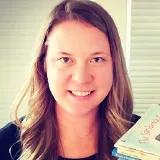Voyager Sopris Learning EDVIEW360 Podcast Series

Accurate Math Assessment: Informing Systemwide Support
As schools across the country implement a Multi-Tiered System of Support (MTSS) framework, an integration of data and instruction is necessary to support all students and ensure success. Specific to math, a schoolwide or districtwide system should include various components, such as different types of assessment for different purposes, multiple levels or tiers of support, and available resources. Accurate assessment data is necessary to examine the effectiveness of instruction at each tier of support. This informative presentation will describe how to utilize math assessment data within a data-based, decision-making framework to evaluate instruction from a systems-level perspective.
Attendees will learn:
- Why it’s important to conduct systems-level problem solving
- How assessment fits into the MTSS framework
- Ways to use math screening data to evaluate their system of support in math
We hope you’ll join us!
The Power of Prevention: The Critical Need for Assessment
Reading failure can be prevented in almost every learner.
In this webinar, Dr. Ruth Kaminski, co-author of Acadience Reading K-6 (formerly known as DIBELS) will discuss what we know about the prevention of reading failure. She will share practical advice about methods to prevent reading failure, all of which are grounded in the science of reading, with an emphasis on the role of assessment.
As a result of participation in this webinar, attendees will:
- Become familiar with a prevention-oriented model of reading failure
- Learn practical strategies for preventing reading failure
- Understand the critical role of assessment in the prevention of reading difficulties.

When Accurate Assessment Leads to Excellent Instruction: Aligning Curriculum with the Science of Reading Using Acadience Reading K–6 and Voyager Passport
Universal screening is an essential element of schoolwide literacy models for implementing the science of reading and aligning it to curriculum. Screening with Acadience® Reading K–6 efficiently indicates skill level on the essential early literacy skills—phonemic awareness, phonics, fluency, and reading comprehension. Giving the assessment is only the first step. Educators need to know how to interpret the data and link assessment to curriculum and instruction that improve reading performance.
In this useful session, participants will see examples of the common patterns of risk captured by Acadience Reading K–6 as displayed in the Acadience® Learning Online platform. Our presenters will share how the assessment results can lead to targeted lessons within the Voyager Passport® program. Examples of specific lessons will illustrate the instruction needed by students with each risk pattern.
Attendees will learn:
- The features of Acadience Reading K–6 as a universal screening assessment that indicates the five essential components of reading
- Which skills to target for science of reading-based instruction as displayed in the Acadience Learning Online platform
- The common patterns of data for students who are at risk of reading failure
- Targeted lessons within Voyager Passport that meet the needs of at-risk students
- How to pair assessment results with specific lessons and activities within Voyager Passport
Integrate Literacy, Behavior, and Social Emotional Learning: Strategies for Educators
When working with fragile readers, we are working with fragile young people. Learn what you can do to combine scientifically based literacy strategies, research-based behavioral strategies, and social emotional learning to lift a child’s spirit, give them an environment in which they feel safe to learn, and enhance learning, achievement, and future opportunities. Plan your reading-intervention strategy, and what you can do to help students "catch up," feel confident, and hold their heads high.
During this webinar, you’ll learn how to:
- Support self-awareness and build relationship skills
- Teach behavioral skills for literacy building and employability
- Improve reading skills and enjoy the ensuing confidence
Providing Reading Interventions for Students in Grades 4–9: What the IES Guide and Research Tell Us
If you have intermediate and secondary students who are still not reading accurately and fluently with good comprehension, this useful presentation is a hands-on learning experience just for you.
Join us for this thorough webinar when Dr. Anita Archer will review the major recommendations of the Educator’s Practice Guide recently released by the Department of Education’s Institute of Education Sciences.
The guide’s recommendations include:
- Building students’ decoding skills so they can read complex multisyllabic words
- Providing purposeful fluency-building activities
- Utilizing several research-validated comprehension practices
Join us as Dr. Archer discusses the recommendations and helps you gain insight into the research about reading intervention for older struggling readers.
Reading Intervention in Middle School: Critical Steps for Success
The evidence is compelling – early identification and intervention is key to providing the greatest opportunity to “close the gap” among struggling and successful readers. However, the stark reality is that many older students are reading below levels which enable them to comprehend grade level, and content-area texts.
Although an approach to intervention for older students may require some modifications, the components of explicit instruction, structured literacy, and ample opportunities to practice to fluency remain the cornerstone of good instruction. Join Dr. Julie Klingerman as she explores these facets of intervention unique to older students:
- How do the components of a structured literacy approach apply to older, struggling students?
- How can intervention be accelerated in both word recognition and language comprehension to prepare students for the rigors of content-area reading?
- Which kinds of practice are most motivating to students in grades 4 and up?
Participants will engage in the research and practical application of these topics and more, as Dr. Klingerman explores the unique needs and challenges of working with older students with complex literacy profiles.
Learning is NOT a Spectator Sport: Increasing Student Engagement
Would you like your students to be more motivated, more engaged, more on-task, and learn more in your lessons? If so, the answer lies in increasing the opportunities to respond.
In this webinar, Dr. Archer, a respected authority on literacy teaching and learning, will share the research on opportunities to respond and practical procedures for implementing verbal, written, and action responses in all lessons. You’ll learn useful strategies and inspiring tips to help you better engage your students, and therefore they’ll learn more from your teaching.
Join us for this useful webinar with the always motivating Dr. Archer, and you’ll leave with practices you can immediately apply in your classroom.
The Science of Writing: Accelerate Overall Literacy Development via Writing
Join this fascinating, useful presentation as Dr. Leslie Laud shares the most powerful evidence-based practices for raising literacy outcomes—while emphasizing the role writing can play. As Dr. Laud calls on an abundance of current research, much of it just out in 2020-2021, she will help you understand its impact and how the research sheds new light on what works in explicit, Structured Literacy instruction. This webinar will present the latest evidence-based practices so you can best help your students get caught up following the gaps in instruction they may have experienced during the past year.
Attendees will learn:
- The latest advances in the science of writing
- The five keys of the science of writing
- The most promising practices you can use tomorrow
- About resources that can help you continue to grow as a writing teacher
- The overlap between reading and writing, and why writing can lift overall literacy outcomes
Your Literacy Assessment Toolbox: Effectively and Efficiently Informing Schoolwide Multi-Tiered Systems of Support
Join education and assessment expert Dr. Kelly Powell-Smith of Acadience Learning as she examines the critical issues educators face when making assessment decisions. Which assessments are necessary to support schoolwide Multi-Tiered Systems of Support (MTSS) in the area of literacy, and when should they be used?
You’ll walk away from this informative session with newfound understanding of:
- The various purposes assessments serve and what kinds of reading assessments are needed in a MTSS
- How to connect reading assessments to critical questions educators need to answer in a MTSS
- How to design an effective and efficient reading assessment system that results in actionable data leading to improved student outcomes
Dr. Powell-Smith will share application of these ideas in pre-K–8 settings, and she will provide specific examples and recommend resources.
We hope you’ll join us!
Reading Intervention for Middle School English Learners: Changing the Trajectory
For our middle school English Learners, special considerations must be made based on the stages of language acquisition, literacy levels in their native language, and support needed to learn to read and write in English. As an educator, are you doing everything possible to change the trajectory of literacy challenges into success?
During this informative and eye-opening presentation, Dr. Antonio Fierro—an esteemed literacy expert and an English Learner himself—will illustrate why teachers of older English Learners must be diagnostic in nature with their approach to reading intervention. Attendees will also learn:
- To apply techniques that build on language components
- Why a Structured Literacy approach is essential for grades 5–8
- The language elements necessary to teach academic vocabulary and improve oral and written discourse
- How small-group and age-appropriate intervention succeeds when other approaches may not
We hope you’ll join us!
Add your email here to sign up for EDVIEW360 blogs, webinars, and podcasts. We'll send you an email when new posts and episodes are published.








